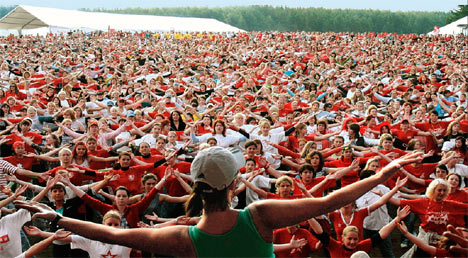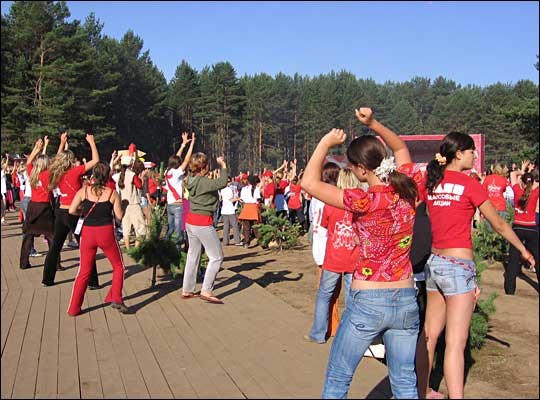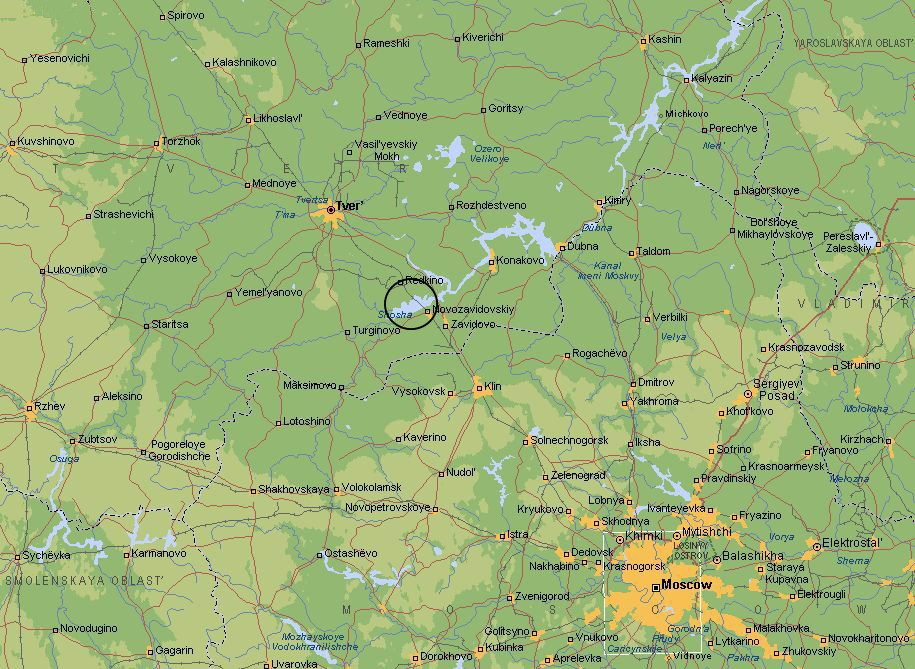Obediently, couples move to a special section of
dormitory tents arranged in a heart-shape and called "the
Love Oasis", where they can start procreating for the
motherland.
With its relentlessly upbeat tone, bizarre ideas and tight
control, it sounds like a weird indoctrination session for
a phoney religious cult. But this organization - known as
"Nashi", meaning "Ours" - is a youth movement run by Vladimir
Putin's Kremlin that has become a central part of Russian
political life.
|
So are drinkers; alcohol is banned. But sex is encouraged,
and condoms are nowhere on sale.
Bizarrely, young women are encouraged to hand in thongs and
other skimpy underwear - supposedly a cause of sterility -
and given more wholesome and substantial undergarments.
Twenty-five couples marry at the start of the camp's first
week and ten more at the start of the second. These mass
weddings, the ultimate expression of devotion to the
motherland, are legal and conducted by a civil official.
Attempting to raise Russia's dismally low birthrate even by
eccentric-seeming means might be understandable. Certainly,
the country's demographic outlook is dire. The hard-drinking,
hardsmoking and disease-ridden population is set to plunge
by a million a year in the next decade.
But the real aim of the youth camp - and the 100,000-strong
movement behind it - is not to improve Russia's demographic
profile, but to attack democracy.
Under Mr Putin, Russia is sliding into fascism, with state
control of the economy, media, politics and society becoming
increasingly heavy-handed. And Nashi, along with other similar
youth movements, such as 'Young Guard', and 'Young Russia',
is in the forefront of the charge.
At the start, it was all too easy to mock. An early event
in the heart of Moscow in 2000 was run by Nashi's predecessor,
'Walking together'. In that event, a motley collection of
youngsters were collecting 'unpatriotic' works of fiction
for destruction.
It was sinister in theory, recalling the Nazis' book-burning
in the 1930s, but it was laughable in practice. There was
no sign of ordinary citizens handing in books. The copies
piled on the pavement for burning had been brought by the
organisers. And, once the television cameras had left, the
event organisers admitted that they were not really volunteers,
but being paid by "sponsors". The idea that Russia's anarchic,
apathetic youth would ever be attracted into a disciplined
mass movement in support of their president - what critics
called a "Putinjugend", recalling the "Hitlerjugend"
(German for "Hitler Youth") - seemed fanciful.
But life for young people in Russia without
connections is a mixture of inadequate and corrupt
education, and a choice of boring dead-end jobs. Like
the Hitler Youth and the Soviet Union's Young Pioneers,
Nashi and its allied movements offer not just excitement,
friendship and a sense of purpose - but a leg up in life,
too.
|




